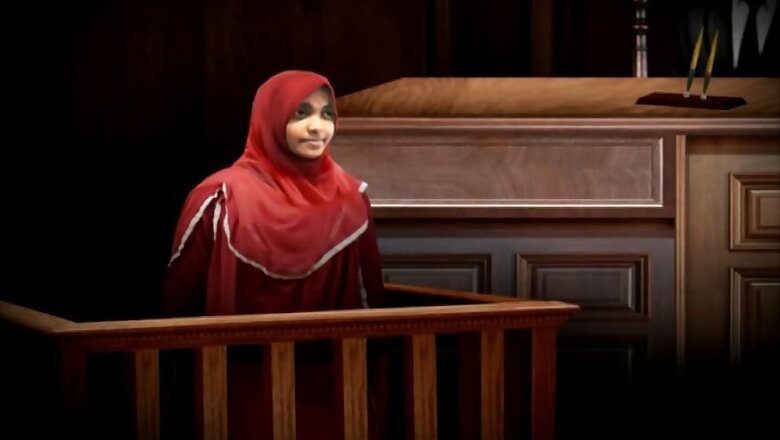
views
New Delhi: In a big victory for freedom of choice, a Supreme Court bench led by Chief Justice of India Dipak Misra, on Thursday, upheld the marriage of Hadiya and Shafin Jahan, ruling it is was her choice to live with whoever she wishes to.
The verdict set aside the controversial 2017 ruling by the Kerala High Court, which had given the custody of the 24-year-old to her father Ashokan. The HC had stated that Hadiya was incapable of taking decisions relating to her marriage.
The apex court, while granting freedom to Hadiya, maintained that she was “free to live with whoever she wants,” and that it cannot allow “state or any other party to make inroad into this extremely private space”.
The Kerala HC had earlier declared the marriage of Shafin Jahan and Hadiya (Akhila) as "null and void". The division bench order of Justices K Surendran Mohan and K Abraham Mathew said the marriage was a “sham and had no consequence in the eye of the law”.
The HC went on to state that the girl was “weak, vulnerable” and capable of being “exploited in many ways”.
“Her marriage being the most important decision in her life can be taken only with the active involvement of her parents,” the HC has ruled.
However, that was not all. Allowing a plea filed by Hadiya’s father, the HC flagged the role of extremist organisations in influencing her and instilling radical thoughts in her.
The ruling came on the face of continuous reiterations by Hadiya that her embracing Islam and marriage to Shafin Jahan happened after a gap of two years, therefore, they had no connection with each other.
Hadiya in her statement to the court said that she got attracted to Islam seeing her roommates and that she wanted to learn more about the religion.
The matter was soon taken to the apex court. In January this year, the National Investigation Agency (NIA) told the court that it had made substantial progress in their investigations into alleged love jihad cases, which were conducted at the apex court's direction
A three-judge bench of CJI Dipak Misra and Justices AM Khanwilkar, DY Chandrachud said the NIA could continue its probe into the cases but it cannot investigate the marital status of a man and woman.
“We are not concerned with it (probe). Whether you carry on your investigation or arrest someone, we are not concerned. You can investigate it but you cannot investigate their marital status,” the bench had said.
However, Hadiya’s father in a last-ditch attempt to “save his daughter” from being “indoctrinated”, filed an affidavit in the court claiming that attempts were made to take Hadiya to Syria and that she was “psychologically and physically abducted”.
The SC verdict upholds a woman’s choice to choose her partner, religion and her life.














Comments
0 comment